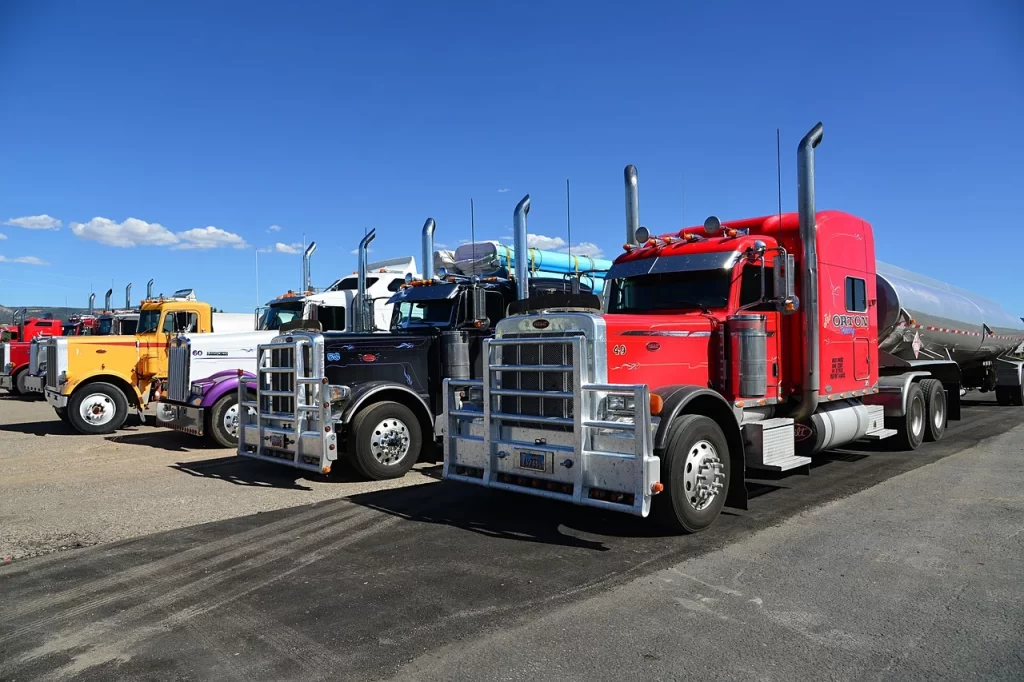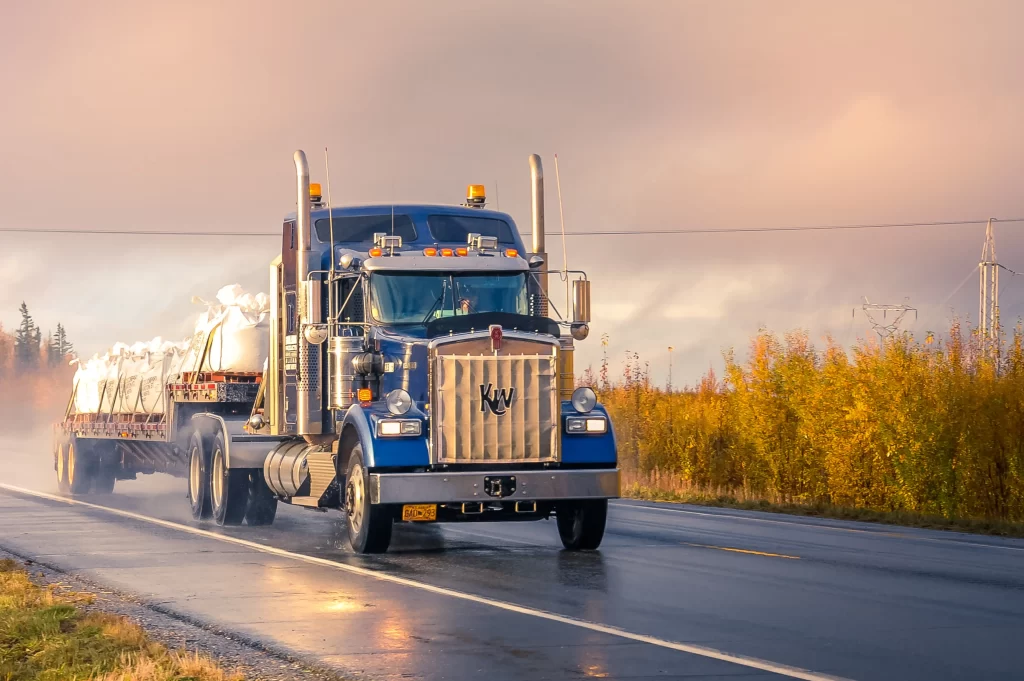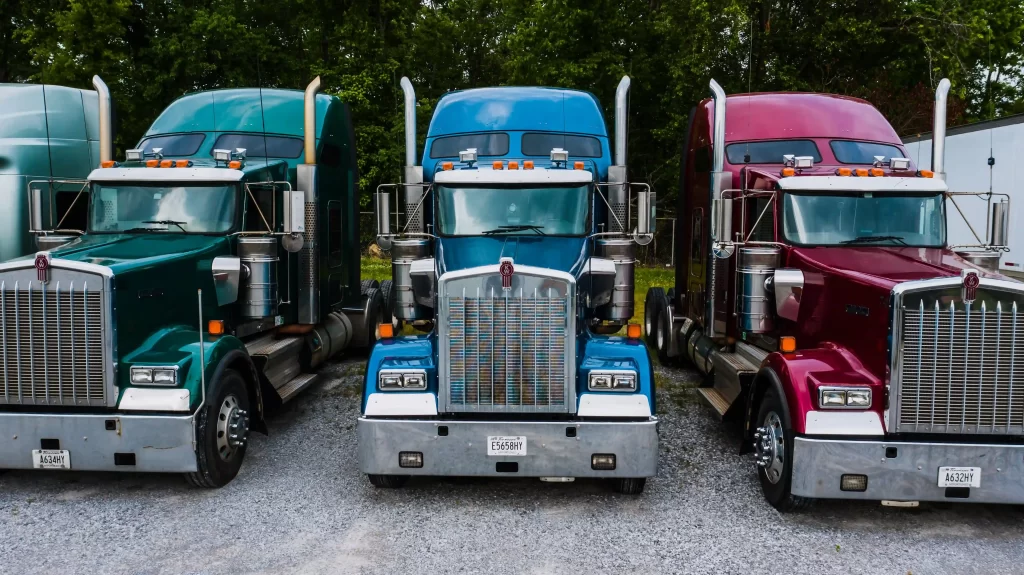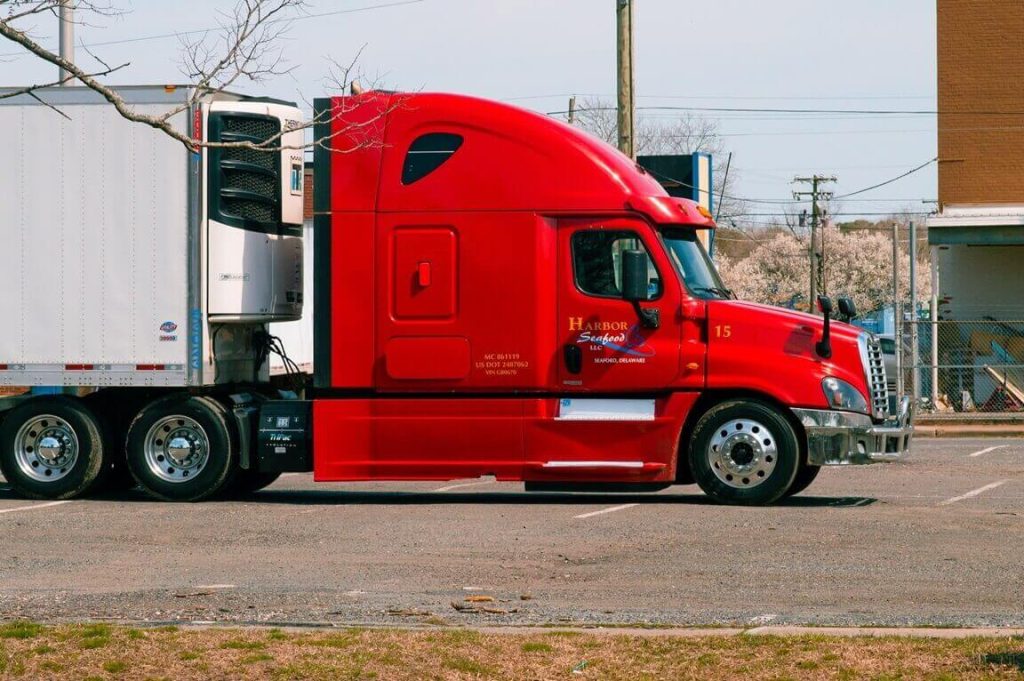
If you strip away the layers of any business, the operation usually boils down to two core elements: identifying a problem, and providing a solution. From small market stalls to multinational corporate giants, all businesses revolve around this basic premise in some way.
When identifying a new business opportunity, the ideal scenario is to easily provide a solution to a widespread and neglected problem in a market that isn’t crowded. In other words, if you can identify a glaring problem that isn’t being adequately addressed and provide the solution relatively easily without too much competition, you have the potential to create a thoroughly profitable business with minimal risk.
Now, if you have vacant commercial land available (or would consider acquiring some), that “ideal scenario” could be right under your nose at this very moment. Many commercial landowners in every corner of America have been quietly profiting from it over the last few years, and you can, too.
We are referring, of course, to the under-exploited and high-demand business of truck parking.
The Problem
The lack of convenient truck parking is a seriously neglected widespread problem and has been for some time. What’s more, the issue is only getting worse.
Millions of truck drivers throughout America are all perfectly happy to pay for convenient short-term truck parking spaces (mostly overnight). However, the demand is born out of more than convenience alone. To meet strict regulations as part of their normal working day, truckers must take a break of at least 10 hours after driving for up to 11 hours in a shift.
However, with under 350,000 overnight truck parking spots accommodating 3.5 million trucks, there simply are not enough parking spaces to go around. OTR truckers are the most affected (those long haul specialists who spend weeks or even months on the road), although the issue plagues most drivers to some degree.
Why The Shortage?
The transport industry has boomed over the last decade or so, mostly owing to the rise of e-commerce, and increased global trade. Driver salaries have also been generously climbing (resulting in more new truck drivers) while changes to hours of service regulations mean that drivers must park and rest more frequently and for longer periods.
There has also been a clampdown on casual parking. Walmarts, for example, used to be quite relaxed toward truck driver parking, but with the increase of trucks on our roads, many of them have clamped down and stopped allowing truckers to park overnight or even for short rest periods. Many other supermarkets, casinos, and malls have followed suit.
There are simply far too many trucks and not enough truck parking spaces to satisfy the volume. As a result, most truck stops and rest areas are full by mid-afternoon, with countless truckers spending hours each week endlessly circling truck stops looking for truck parking spots. Because of this, many truckers are resorting to dangerous exit ramps, shoulders, and risky urban areas for truck parking.
Frankly, the industry is in desperate need of more truck parking spaces as an absolute priority.
The Solution
The obvious solution, on a federal and local level, would be to build new truck stops. But that simply isn’t happening. Or at least, it isn’t happening quickly enough: 350K truck spaces versus 3.5 million trucks is a staggering disparity to resolve, and the few additional official rest areas being built are barely putting a dent in the problem. The private truck parking sector is currently picking up most of the flack, but more private parking is urgently needed.
This is where you come in.
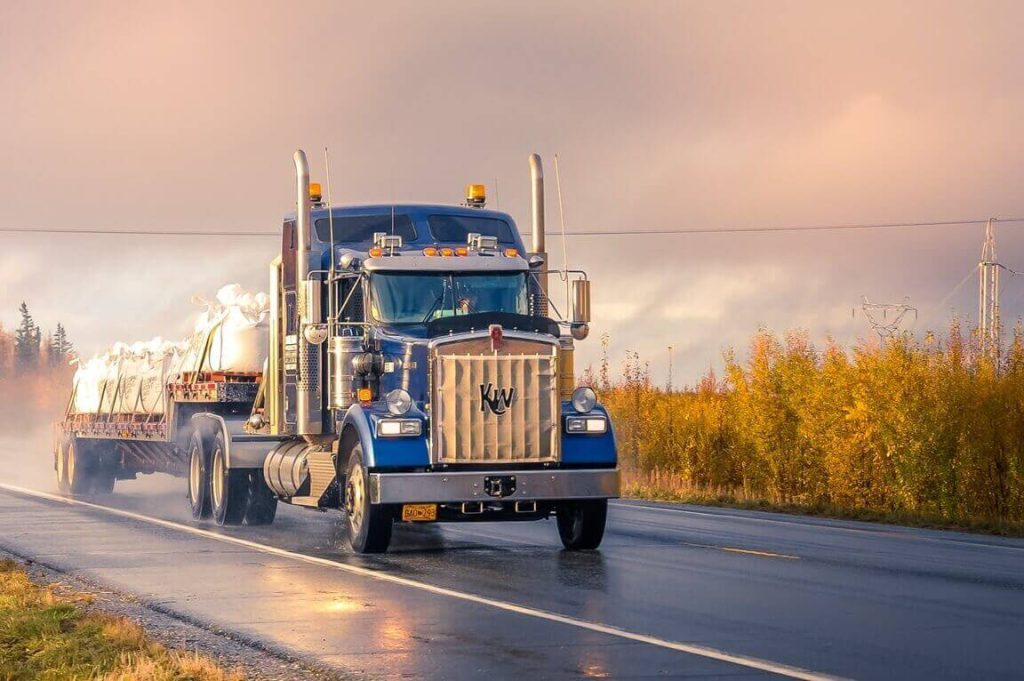
If you have commercial land available (in whatever form that takes) or would consider investing in some, you might be able to provide a solution by offering spaces to the vast number of truckers who are in need of affordable and convenient truck parking.
Essentially, you will capitalize by charging truck drivers to park on your land by creating your very own truck parking business.
Now, at first thought, you might be imagining a gigantic swathe of land teaming with facilities, fuel services, and food options. Creating that level of truck parking is a viable option (should you have the capital and expertise to launch such a multi-faceted operation), but you don’t need to create something of such a colossal scale. All you need is land.
A Simple Enterprise
Most new truck parking businesses are actually quite basic and not even especially large in terms of footprint. While large private truck stops with plenty of facilities would serve the problem very well, they are not essential. What is essential are lots of smaller, more basic parking areas for truckers spread over multiple areas.
Again, all you need is commercial land in an area that allows for truck parking, and you can effortlessly (and almost immediately) satisfy this essential requirement by transforming your land into a viable truck parking cash cow right now.
You don’t even need any marketing expertise or an advertising budget: the rise of parking technology such as Truck Parking Club has got that covered for you. Our truck parking app will list your property so that truck drivers can find you in real-time.
Let’s take a more detailed look at how to launch a truck parking business.
1) Location
The location of your truck parking business is going to be an important factor in its success, as you will need land that is easy for truck drivers to access and use. Truckers spend most of their time on highways, and while they will be willing to drive a few miles away from a highway for good truck parking, there are limits.
To that end, land within a 15-minute drive of major highways would be ideal. Close to rest stops and logistics centers would be even better, for obvious reasons. You are also going to need ample room for a good number of trucks that can move around without any hassle.

2) Research Local Bylaws
Nearly every city has specific zoning laws that decide how different areas can be used, typically dividing them into agricultural, industrial, and residential zones. For truck parking businesses, industrial zones are going to be your ideal areas.
Parking large trucks in residential neighborhoods is generally off-limits, restricted to temporary stays for smaller trucks only. The rather imposing class eight trucks (basically your typical ‘big rigs’) are almost always a straight no-entry in these zones.
To get precise information on the requirements for your location, check out the website of your local municipality and search for zoning regulations, then contact your local planning or zoning department to find out exactly what permits and licenses are needed for your truck parking business.
3) Facilities & Infrastructure
The next step is setting up the infrastructure, starting with the pavement and markings. You’ll want a sturdy, well-maintained surface that can bear the weight of heavy trucks and withstand various weather conditions while ensuring the parking spaces are clearly marked. This not only helps with driver navigation but also maximizes the use of space available. A standard truck parking spot should measure around 30 feet in length and 15 to 20 feet in width, equating to around 500 square feet, assuming many trucks will include a tractor unit.
Then, focus on the lighting and drainage. Good lighting is important, especially for operations at night. Proper drainage is another key aspect, as it prevents water buildup, protecting both the trucks and the lot from potential damage.
Lastly, don’t overlook the importance of clear signage. Well-placed signs for the entrance, exits, parking areas, and available amenities (if any) contribute to a better experience for the truckers using your facility.
4) Local Competition
Had we created this guide 15 years ago, we might have suggested avoiding areas that already provide suitable truck parking. However, with such high demand for truck parking at the moment (and for the foreseeable future), this is almost a moot point: with such a huge nationwide shortage of truck parking spaces, competition isn’t much of a factor here.
If you have existing land that is already close to existing truck parking, go ahead and pay them multiple visits to ascertain how often they are full. If you find they are full most of the time, your own truck parking business should not be affected.
Alternative Solution
You might have noticed a general theme running through the aforementioned steps, in which we are pointing out a few crucial elements in launching a purpose-built, dedicated truck parking facility.
However, most (if not all) of these steps can be negated if you already have existing land in a commercial area. While the notion of building a purpose-built truck parking area is, again, perfectly viable – and many commercial landowners are doing just that – you don’t need to fully commit to the endeavor on the same level.
By listing your existing commercial land on the Truck Parking Club app, you can declare yourself a truck parking lot business without actually launching one. It doesn’t even need to be separate land: many of our Property Members are renting out spaces on land that already serve a purpose, such as company parking lots or unused sections of their business premises.
You just need sturdy land capable of supporting heavy trucks. While additional facilities like toilets, showers, and food options are good extras, they’re not strictly necessary. Many commercial landowners have successfully listed their bare-bones properties on our parking app and are thriving.
What truckers primarily seek is straightforward parking space. As long as you can provide that — whether it’s a handful of spots or space for hundreds of trucks — you’re set to enter the exciting, profitable truck parking lot business.
How It Works
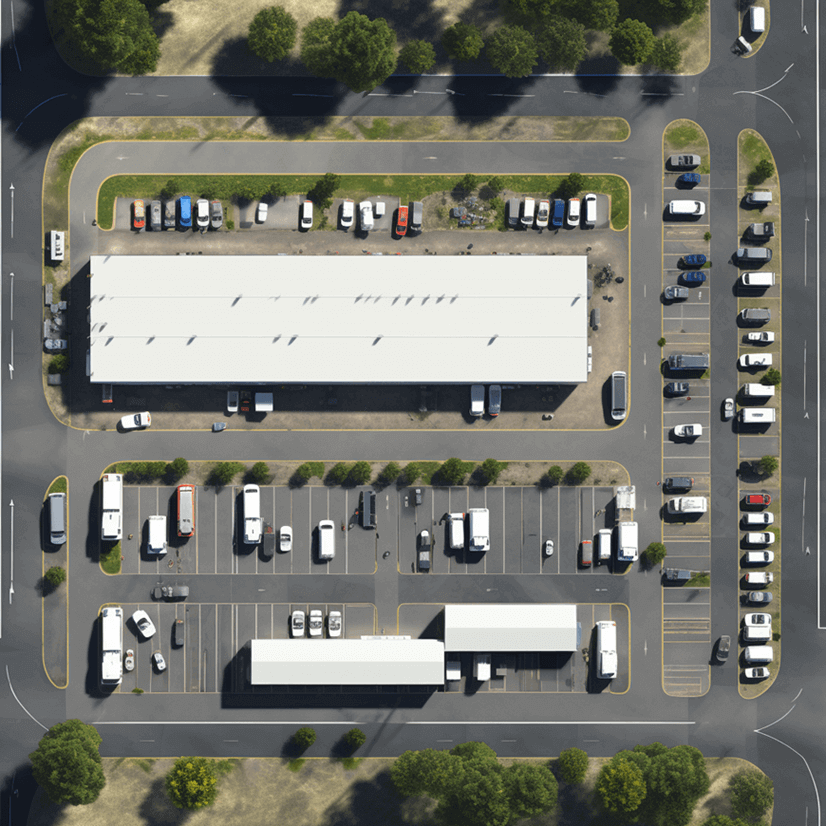
Property owners can become Property Members by listing their industrial land on our Truck Parking Club app. Truck drivers then use the service by searching our listings for truck parking spaces, mostly on an overnight basis. They can book instantly for an immediate arrival or up to one month in advance.
Drivers who have booked a space can chat with you through the app, if needed, about any specifics regarding their parking. That said, your listing will clearly state-specific information such as amenities (if any), meaning that in most cases, the driver will simply book through the app, confirm with payment, and arrive.
It’s all rather simple and straightforward. Our service simply provides a way for truck drivers to sync with parking site owners with as little complication as is necessary.
How to Become a Truck Parking Club Property Member
1) Start by creating an account on our platform. Once registered and verified, you gain access to a user-friendly dashboard where you can manage your listings and bookings with ease.
2) The next step is listing your property. Provide details about your parking space, including size, number of spots, and any appealing features, like security, facilities, or nearby conveniences. These details make your listing more attractive to truckers, although they are not a requirement.
3) To facilitate any bookings, you will need to connect a Stripe account for secure financial transactions (our customer service team is always ready to help if needed).
4) Once listed, truckers can reserve a space by searching for available parking in your area. You will be informed about each booking via email and text.
Final Thoughts
Given the shortage of truck parking sweeping America, a truck parking business could be a lucrative move if you have spare commercial land available or would be interested in acquiring some.
Hosting through Truck Parking Club also means that many of the usual expenses associated with a traditional truck parking business, such as construction, facilities, advertising, and promotion, are completely negated. Thousands of truck drivers use our service to browse for spots daily, and if you are located within a short drive of a highway, they will find you through our app.
Become a Property Member for Truck Parking Club and become part of the solution while enjoying potentially substantial profits!
The information published herein is for general informational purposes only. Truck Parking Club does not make any representations or warranties about the completeness, reliability, legality, and accuracy of this information. Any reliance placed on such material is strictly at the user’s own risk. Truck Parking Club shall not be responsible for any losses or damages incurred in connection with the information published herein.



